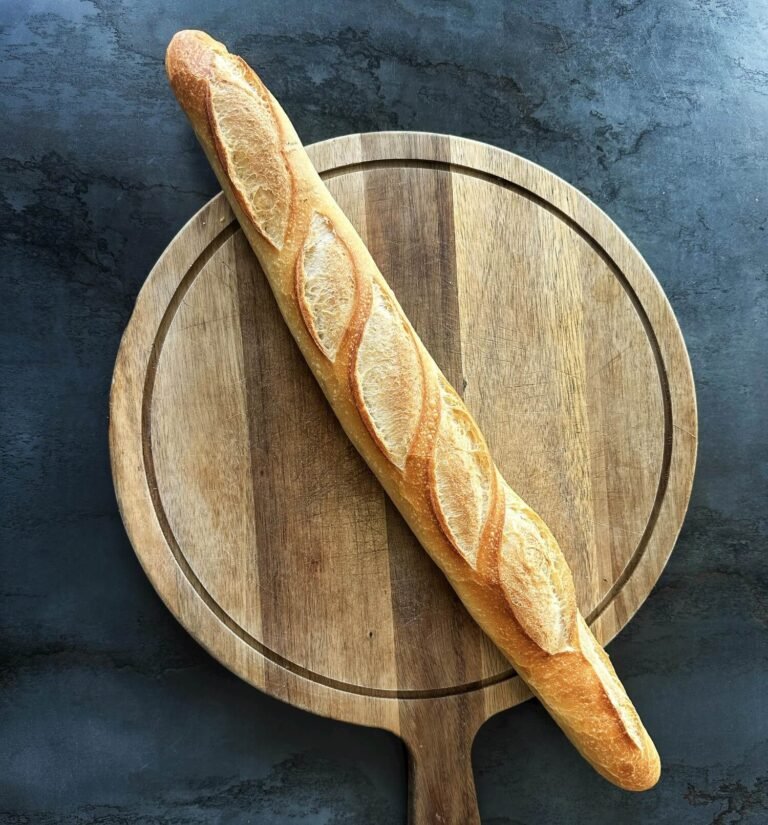Discover how a marble rolling pin can boost your baking skills today. Experts at the Culinary Institute of America value its unique design for even dough rolling.
A marble rolling pin is an essential tool for bakers. It offers both style and function in the kitchen. Known for its cool, smooth surface and weight, it helps roll pastry dough with ease. Whether you make pie crusts, cookies, or pasta, this tool helps you control thickness without sticking. In this guide, we explain its benefits, care tips, and expert advice for great baking.
Why Choose a Marble Rolling Pin?
Even Rolling for Perfect Results
The weight of a marble rolling pin gives you even pressure on the dough. This action rolls the dough uniformly. Even thickness is important for proper baking.
Pro Tip: Roll from the center outwards to keep the dough even.
Cool Surface to Prevent Sticking
Marble stays cool. This coolness prevents pastry dough from softening or sticking. It is especially useful with butter-based doughs, where warmth can melt the fat.
Example:
When you roll cookie dough, the cool surface of the marble pin keeps it strong, resulting in shaped cookies that do not stick.
Durable and Long-Lasting
The marble rolling pin is stylish and built to last. With proper care, it can serve you for many years. Unlike wooden pins that may warp or crack, marble pins resist wear.
Pro Tip: Do not drop your marble pin to avoid chips and cracks.
Types of Marble Rolling Pins
Classic Marble Rolling Pins
Classic marble rolling pins feature a simple cylindrical design with no handles. Many bakers like them for their ease of rolling. The heavy marble makes rolling effortless.
Pros:
- Simple and effective design
- Heavier for improved rolling control
- Applies even pressure
Cons:
- Harder to grip without handles
- Needs extra care when handling
Marble Rolling Pins with Handles
Marble rolling pins with handles give you a better grip. Their ergonomic design offers improved control and maneuverability. They are ideal for long baking sessions.
Pros:
- Comfortable, ergonomic design
- Better control during rolling
- Great for extended use
Cons:
- Slightly lighter than classic models
- Cleaning may be trickier
Key Features to Look For in a Marble Rolling Pin
Material Quality
Select a rolling pin made from high-quality, food-grade marble. Experts from Kitchen Appliance Reviews recommend a polished surface for smooth rolling. A dense, heavy pin ensures even results.
Pro Tip: Choose a heavy and well-polished pin for stability.
Length and Diameter
The size of the rolling pin matters. A longer pin lets you roll larger dough sheets. A thicker pin gives a comfortable grip. Pick one that fits your baking needs.
Pro Tip: An 18-inch pin is a great standard size for most tasks.
Maintenance and Care
Marble pins are easy to care for if you follow the right steps. Do not soak them. Instead, clean with a damp cloth and mild soap. Use food-safe mineral oil to keep the shine.
Pros and Cons of Marble Rolling Pins
Pros:
- Even and smooth rolling surface
- Cool surface prevents sticking
- Durable with proper care
- Enhances kitchen decor
Cons:
- Heavy and may be challenging for some
- Needs careful cleaning to avoid stains
- Often more expensive than wood
Conclusion
A marble rolling pin is a valuable tool for passionate bakers. It provides even rolling and keeps dough cool. Proper care enhances its performance. Enjoy making tasty treats with this durable tool.
Ready to boost your baking? Check out this top-rated marble rolling pin and start rolling perfect pastries at home: https://amzn.to/3Y7akZY
As an Amazon Associate, I earn from qualifying purchases.
Frequently Asked Questions
How do I clean my marble rolling pin?
Wipe it with a damp cloth and a bit of mild soap. Do not soak it in water. Dry it immediately with a soft towel.
Can I use mineral oil on a marble rolling pin?
Yes, use a food-safe mineral oil to keep its polished finish and help prevent staining.
Is a marble rolling pin suitable for all dough types?
It works great with pastry, cookie, and pasta dough. Its cool surface helps keep the dough from becoming sticky.
Explore this topic: Kitchen
Last updated on August 7, 2025





